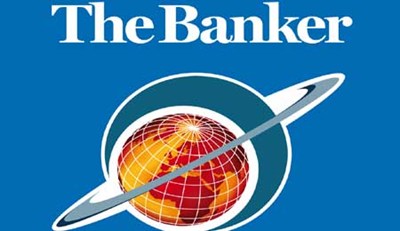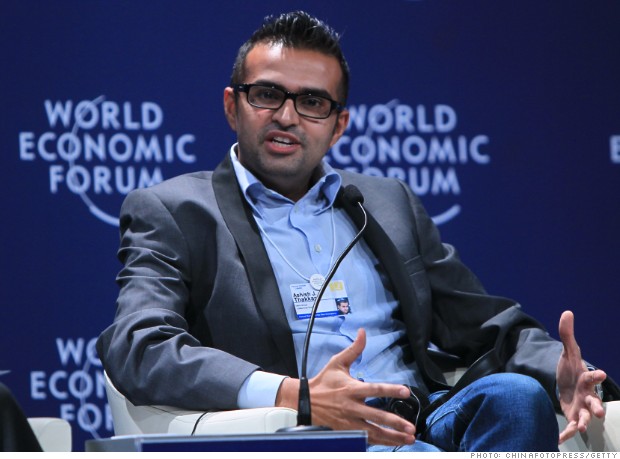 Internet has become an essential part of our life, playing critical role in our politics and democracy, banking and finances, music and films, and our daily interaction with family and friends. A lot of daily activity is tied to the availability of the internet.
Internet has become an essential part of our life, playing critical role in our politics and democracy, banking and finances, music and films, and our daily interaction with family and friends. A lot of daily activity is tied to the availability of the internet.
While we worry about its availability at an affordable rate and good speed, the international community, networked by the internet, has been recently engulfed by the debate about the future of the internet and who should direct the policy decisions that shapes its future.
The controversial U.S. surveillance scandal of 2014, including the monitoring of some foreign leaders, have reignited an international debate over Internet governance. Some countries relied on the scandal to push for a diminished influence of the U.S. over some Internet infrastructure—principally processes managed by the U.S.-based nonprofit, ICANN, which coordinates the unique identifiers (Internet Protocol addresses and domain names) that people and devices use to connect on the Internet. ICANN is an acronym for the Internet Corporation for Assigned Names and Numbers.
But the discussion around internet governance extends beyond ICANN. Internet governance touches on a range of public policy issues, including freedom of expression, trade, privacy and intellectual property, cybersecurity, and sovereignty.
These Frequently Asked Questions and their answers will help you understand the issues and why it should matter to you.
What is Internet Governance?
The definition of internet governance, like internet itself, has evolved over time, since internet was first opened to the public in mid 1990s. The term initially referred to a limited set of policy issues associated with the global synchronization and management of domain names (e.g., samplesite.com) and IP addresses (e.g., 7.42.21.42). But this definition has since broadened to principally combine ideas around the management of the technical resources necessary for its stability and discussion around behaviours emerging from the use of the Internet.
In 2005, the UN-sponsored World Summit on the Information Society defined Internet governance as “the development and application by governments, the private sector and civil society, in their respective roles, of shared principles, norms, rules, decision-making procedures, and programs that shape the evolution and use of the Internet.”
How is the internet governed currently?
The internet has become too disintegrated that no single government can influence it beyond its borders. But the U.S. still maintains a considerable level of influence on the internet, beyond every other country. This is partly because internet was originally a project of the United States, and its contract with ICANN. The U.S., literarily, is the custodian of the internet phonebook.
Does the UN have a role?
The United Nations has no role in internet governance at the moment. But in 2006, at the World Summit on the Information Society, the UN set up the Internet Governance Forum, as an international group of governments and nongovernmental entities to discuss internet governance issues. IGF meets annually and historians say it was set up largely as UN’s response to ICANN.
The IGF embraces the multistakeholder model (a model also utilized by ICANN), where states—including many authoritarian governments—agreed to participate in policy discussions on an equal footing with private sector and civil society groups.
The IGF issues no binding outcomes of its proceedings. It is a venue where contentious public policy matters at the content layer of the Internet can be freely discussed.
Did the establishment of the IGF resolve the Internet governance debate?
No. Some countries remain unsatisfied with ICANN’s management of the DNS as well as the multistakeholder model of Internet governance. Many governments feel it is inappropriate for Washington to have unilateral oversight over the most prominent multistakeholder gathering of Internet policymaking – ICANN.
At the UN-sponsored World Conference on International Telecommunications in Dubai (December 2012), Russia, China, Saudi Arabia, Algeria, and Sudan endorsed a proposal stating, “Member States shall have the sovereign right to establish and implement public policy, including international policy, on matters of Internet governance.” The proposal also called for member states to take over much of ICANN’s remit, including Internet numbering, naming, and addressing.
The U.S. delegation rejected the plan, asserting that “the United States continues to believe that Internet policy must be multi-stakeholder-driven. Internet policy should not be determined by member states, but by citizens, communities, and broader society.”
What is the future of Internet Governance?
The U.S. has agreed to withdraw its influence on ICANN by ending its contract with IANA. In early 2014, the U.S. government announced plans to relinquish its historic stewardship over the Internet IANA, which is operated by ICANN. The contract will expire in September 2015 and the U.S. is pushing for a private sector – customer – driven global multistakeholder Internet governance approach.
Although the U.S. says there are plans to ensure no stakeholder – or country as the case may be – hijacks IANA, the U.S. Department of Commerce stipulated that it would not transition IANA stewardship over to a government-led or intergovernmental organization.
What is ICANN and what do they do?
ICANN is an acronym for the Internet Corporation for Assigned Names and Numbers. ICANN coordinates internet’s unique identifiers – Internet Protocol, IP, addresses and domain names – that people and devices use to connect on the Internet.
ICANN was established in 1998 under contract to the U.S. Department of Commerce, as a private nonprofit organization headquartered in California. It’s core function includes management of the global Domain Name System. DNS, often referred to as the Internet’s “phone book,” is a worldwide network of databases mapping domain names (premiumtimesng.com) to IP addresses (7.42.21.42) so that users can send and receive information from any of the billions of web-connected devices. The DNS is essential for the proper function of the internet. The U.S. government originally managed the technical underpinnings of the DNS because the U.S. Department of Defense developed the network technology (ARPANET) from which the Internet evolved.
ICANN is guided by an international board of directors, which is elected by members of the ICANN community and holds final decision-making authority. The board is advised by a committee with representatives from more than 110 national governments.
What is IANA?
IANA is the acronym for Internet Assigned Numbers Authority, which is operated by ICANN. IANA is one of the Internet’s oldest institutions, with its activities dating back to the 1970s. Its principal function is the global coordination of key technical areas of the internet.
Specifically, IANA allocates and maintains unique codes and numbering systems that are used in the technical standards (“protocols”) that drive the Internet.
Is naming the only way governments can participate in governing the internet?
No. The discussion around internet governance extends beyond ICANN, IANA and DNS. Internet governance touches on a range of public policy issues, including freedom of expression, trade, privacy and intellectual property, cybersecurity, sovereignty and promoting strong IP laws.
The provision of the physical infrastructure that underpins the internet to rural communities – places private sector consider non-viable – is also one way governments in developed countries are participating on the internet internet. The U.S., through its Broadband USA program, has connected many of its rural communities to broadband access, enhancing its competitive edge in global digital economy.
Why is America giving up its role in Internet Governance?
Washington says it is relinquishing its stewardship of IANA, principally to prove to the rest of the world that the customer driven multi stakeholder Internet governance approach which it is promoting is the best for the future of the internet.
“If we want to have a healthy Internet,” one with the ability to continue innovating, “you want to make sure you have space cleared for the private sector,” Catherine Novelli, U.S. Under Secretary of State for Economic Growth, Energy, and the Environment said in Washington, recently. “We do not think that a heavy top to down control of the internet is healthy for the internet.”
Critics of the U.S. argue that the transition is a strategic move by the Barack Obama administration to placate international critics after Edward Snowden’s exposure of U.S. surveillance practices.
What is the position of Africa in Internet Governance?
There is no known collective standpoint of African governments on Internet Governance. It is not an issue any of the African governments’ bodies have considered strongly. Sudan and Algeria, however, in 2012, joined Russia, China, Saudi Arabia, to push for a stronger government control of the internet, through the United Nations’ ITU.
In July 2012, a gathering of African civil society groups published a joint declaration calling for — among other things — open and transparent Internet policymaking and multistakeholder Internet governance.
Why should I care about Internet Governance?
The internet is an integral part of our existence, and an incredible tool for economic growth. Internet economy is the fifth largest in the world and is growing at an average of 20 percent in developing countries. In many countries, internet has direct impact on GDP, powering education, healthcare, banking, trade and communication.
Most users just want internet to be available whenever the need it. Not so many is concerned about the future of the internet. Any adverse institutional change in the way you access the internet will greatly affect your livelihood. Think about life without internet.


